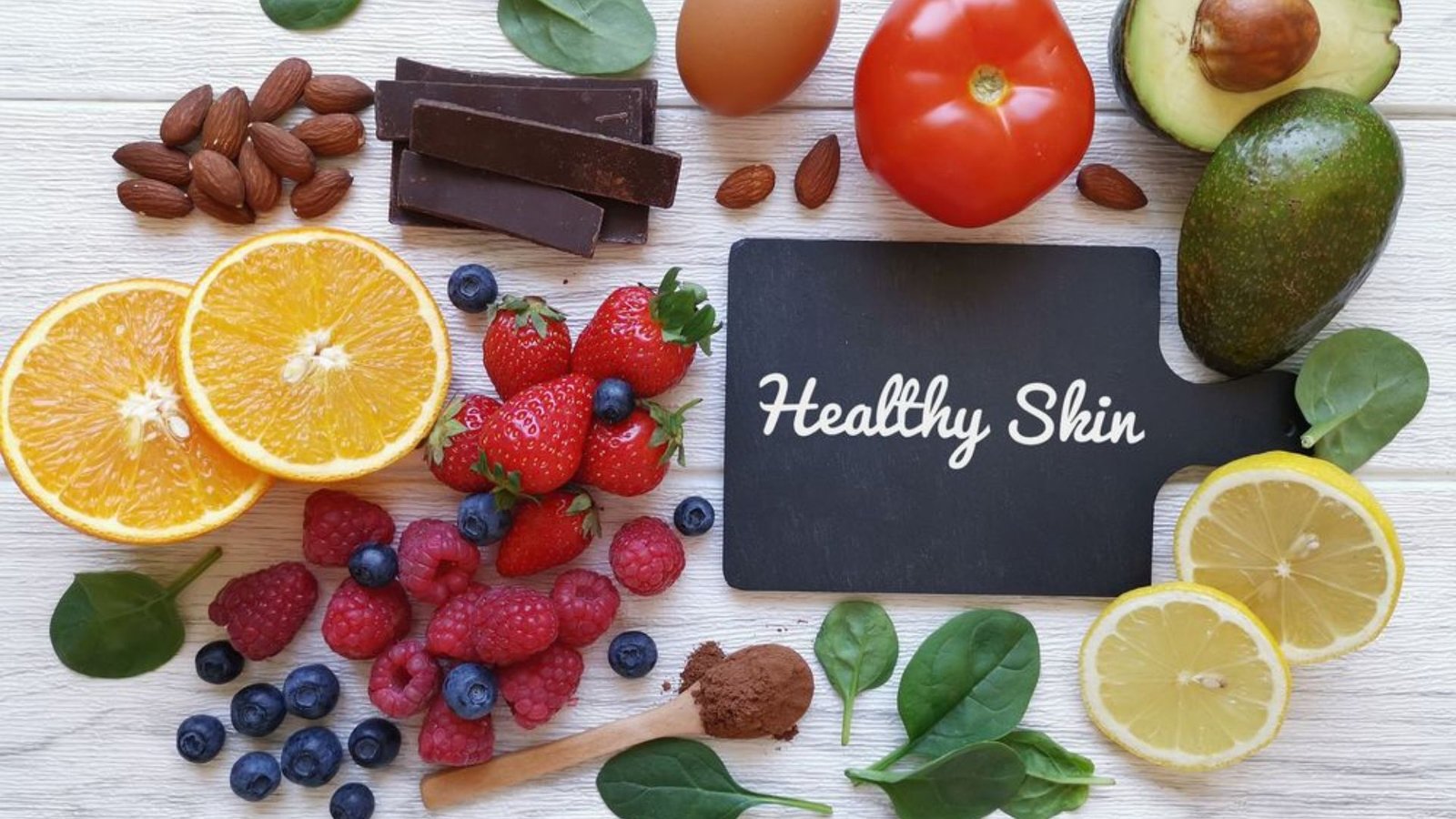Maintaining healthy skin involves more than just using the right skincare products. A balanced diet combined with proper skincare routines plays a crucial role in achieving and maintaining radiant skin. In this post, we’ll explore effective strategies for keeping your skin healthy through diet and care, ensuring you can enjoy a glowing complexion.

1. Eating a Skin-Friendly Diet
1.1 Incorporate Antioxidant-Rich Foods
To start with, eating foods rich in antioxidants is essential for healthy skin. Antioxidants help protect your skin from damage caused by free radicals and environmental stressors. Incorporate fruits like berries, oranges, and kiwi into your diet, as well as vegetables such as spinach, kale, and bell peppers. These foods provide vital vitamins and minerals that promote skin health.
1.2 Include Healthy Fats
Moreover, healthy fats are crucial for maintaining skin moisture and elasticity. Incorporate sources of omega-3 fatty acids, such as fatty fish (salmon, mackerel), flaxseeds, and walnuts. These fats help support the skin’s barrier function and reduce inflammation, leading to smoother and more hydrated skin.
1.3 Stay Hydrated
In addition, staying hydrated is fundamental for skin health. Drinking plenty of water throughout the day helps maintain skin hydration and flush out toxins. Aim for at least 8 glasses of water daily. Including water-rich foods, such as cucumbers, watermelon, and oranges, can also contribute to your hydration levels.
1.4 Opt for Lean Proteins
Lean proteins are essential for skin repair and regeneration. Include sources such as chicken, turkey, legumes, and tofu in your diet. Proteins provide amino acids that support collagen production, helping to maintain skin’s firmness and elasticity.
2. Establishing a Consistent Skincare Routine
2.1 Cleanse Regularly
To maintain healthy skin, cleansing is a crucial step. Use a gentle cleanser suited to your skin type to remove dirt, oil, and makeup. Cleansing twice daily, once in the morning and once before bed, helps prevent clogged pores and breakouts, promoting a clear complexion.
2.2 Exfoliate Weekly
Exfoliation helps remove dead skin cells and promotes cell turnover. Exfoliate your skin once or twice a week using a mild exfoliant or scrub. This process helps to reveal fresher skin and can improve the texture and appearance of your skin. However, avoid over-exfoliating, as it can irritate the skin.
2.3 Moisturize Daily
Moisturizing is essential for maintaining skin hydration and preventing dryness. Choose a moisturizer that suits your skin type—whether it’s cream-based for dry skin or gel-based for oily skin. Apply moisturizer daily to keep your skin soft and supple.
2.4 Use Sunscreen
Sun protection is crucial for preventing skin damage and premature aging. Apply a broad-spectrum sunscreen with at least SPF 30 daily, even on cloudy days. Sunscreen helps protect your skin from harmful UV rays that can lead to sunspots, wrinkles, and skin cancer.
3. Adopting Healthy Lifestyle Habits
3.1 Get Regular Exercise
Exercise is beneficial for overall health, including skin health. Regular physical activity improves blood circulation, which helps deliver essential nutrients to the skin. Sweating during exercise also helps flush out toxins, contributing to a healthier complexion. Aim for at least 30 minutes of moderate exercise most days of the week.
3.2 Get Enough Sleep
Adequate sleep is vital for skin repair and regeneration. Aim for 7-9 hours of quality sleep each night to allow your skin to recover and rejuvenate. During sleep, the body produces collagen and repairs damage, which helps maintain skin elasticity and reduce signs of aging.
3.3 Avoid Smoking and Excessive Alcohol
Avoiding smoking and limiting alcohol consumption can significantly benefit your skin. Smoking reduces blood flow to the skin and accelerates aging, leading to wrinkles and dullness. Excessive alcohol can dehydrate the skin and worsen conditions such as acne and redness. Adopting these healthy habits will contribute to a more vibrant and youthful complexion.
3.4 Manage Stress
Finally, managing stress is important for maintaining healthy skin. High stress levels can lead to skin issues such as acne, eczema, and premature aging. Practice stress-reducing techniques such as mindfulness, meditation, and deep breathing exercises. These practices can help keep your skin looking its best.
Conclusion: Achieving Radiant Skin Through Diet and Care
In conclusion, maintaining healthy skin involves a combination of a nutritious diet and consistent skincare practices. By incorporating antioxidant-rich foods, healthy fats, and adequate hydration into your diet, and following a regular skincare routine, you can achieve and maintain radiant skin. Additionally, adopting healthy lifestyle habits such as regular exercise, sufficient sleep, and stress management will further enhance your skin’s appearance and overall health. Embrace these strategies to enjoy a glowing and healthy complexion.











